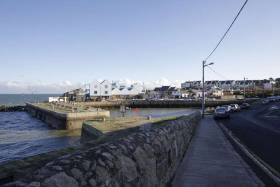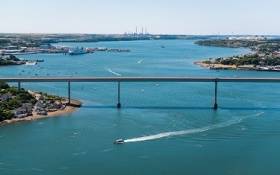Displaying items by tag: Waterfront Development
Development at Bulloch Harbour in Dalkey Gets Go-Ahead
The Irish Times writes of a controversial development proposal for a scenic south Dublin fishing harbour has been given the go ahead by An Bord Pleanála.
Bartra Property, after a protracted planning struggle, has received permission to build a number of housing units at Bulloch Harbour in Dalkey.
It will consist of three three-storey houses, two apartments and a cafe as well as a number of other buildings.
Residents living at and near the picturesque coastal inlet, popular with tourists and for fishing, have long battled the proposals they believe are out of kilter with the surrounding area. Concerns have also been repeatedly aired as to the potential for flooding due to often high sea levels.
Local People Before Profit TD Richard Boyd Barrett said the decision was “incomprehensible”.
“Bulloch Harbour is a unique public amenity used by people of all ages. It is an important part of the heritage of south County Dublin, ” he said.
For more on this coastal development click here.
#Ports&Shipping - An invitation to members of the public and the business community has been made to attend the Port of Milford Haven’s Annual Consultative Meeting later this month.
The event is taking place at the Bridge Innovation Centre in Pembroke Dock on Friday 27th July, starting at 2.30pm. Attendees will receive updates from the Port’s Chairman Chris Martin, Chief Executive Alec Don and leaders of flagship projects Pembroke Dock Marine and the Milford Waterfront Development.
A number of milestones have been reached over the past twelve months including unanimous approval for a revision to Milford Waterfront’s outline planning consent, the launch of Discover Coast and Cleddau boat trips, a new collaboration with The National Museum of the Royal Navy and the acquisition of Havens Head Retail Park in Milford Haven.
Alec Don, Chief Executive at the Port, commented “We’ve had another busy year and made good progress in delivering our diversification strategy to reduce over-reliance on the volatile oil and gas industry. We’re looking forward to sharing our achievements with everyone as well as our vision for the future, whether that be existing customers of the Port or members of the community who have a genuine interest in what happens in and around the Waterway.”
Doors will open at 2pm for a 2.30pm start and light refreshments will be available. Anyone interested in attending and submitting questions prior to the event can email [email protected] or call 01646 696156.






























































